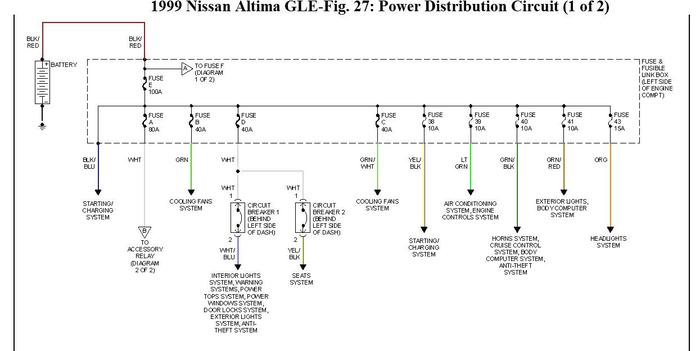You need to start a new question with the car information, (engine size) pertinent to your car. Your post can only be seen by those of us in this conversation. That does you a disservice because none of the other experts will get to see it or have a chance to reply. In this case I can offer some general advice that pertains to any car.
If I followed that correctly, you've stumbled onto the cause of the problem. You just don't see it yet. That large terminal on the back is the output terminal. Current flows through it and back to the battery positive post. You said you found a direct short to the case of the generator, and that will definitely blow the fuse. There's only two things that can cause that, and only one of them can be intermittent.
First of all, every AC generator, ("alternator" is a term copyrighted by Chrysler, but that's not important now), has a minimum of six diodes, and some have more. A diode is a one-way valve for electrical current flow. There are actually two sets of three diodes per set, and due to how they are installed, they are backward to current flow when the generator is not working. Being in the circuit backward blocks current flow from discharging the battery when the engine is not running. It is not uncommon for one diode to short. When that happens, one third of the generator's maximum current rating is all you'll be able to get during a full-load output test. 30 amps from the common 90 amp generator is not enough to run the car's entire electrical system under all conditions. The battery will have to make up the difference until it slowly runs down over days or weeks.
The more serious problem occurs when two diodes short. One has to be in each set of diodes, then you have a direct short to ground, ... And a blown whopper fuse. Very often a single shorted diode will overheat very quickly and burn open. That removes the potential for a dead short if another one shorts, but it still leaves you with insufficient output current. The current you DO get has to come through the remaining diodes, and if they're running wide-open it won't be long before one of them gets hot enough to short. Regardless of the chain of events, if two diodes are shorted and neither one burned open, you have a dead short. That failure is never intermittent. When they're shorted, they're shorted. There is no way testing on or off-car is going to show the generator is working.
The second, and more likely cause of your problem is in the cable connection, specifically how it is bolted on. Given the history of accidentally grounding that point with a wrench adds to the likelihood the terminal is damaged and when things move or wiggle just the right way, the terminal shorts to the housing. That short CAN be intermittent. More importantly, that cable isn't at the store when the generator is being tested.
What I would do is stuff the generator back on the engine, bolt the output cable onto the terminal on the rear. Do this with the battery negative cable removed! Then, since 100-amp fuses are expensive, grab an old 20-amp spade-type fuse and hold it between the negative post on the battery and the negative cable clamp. If the circuit to the generator is still shorted, that 20-amp fuse will blow with no undue excitement and save the expensive 100-amp fuse. If the 20-amp fuse doesn't blow, there's no short and it's safe to reconnect the battery cable.
Friday, September 16th, 2016 AT 10:33 PM



